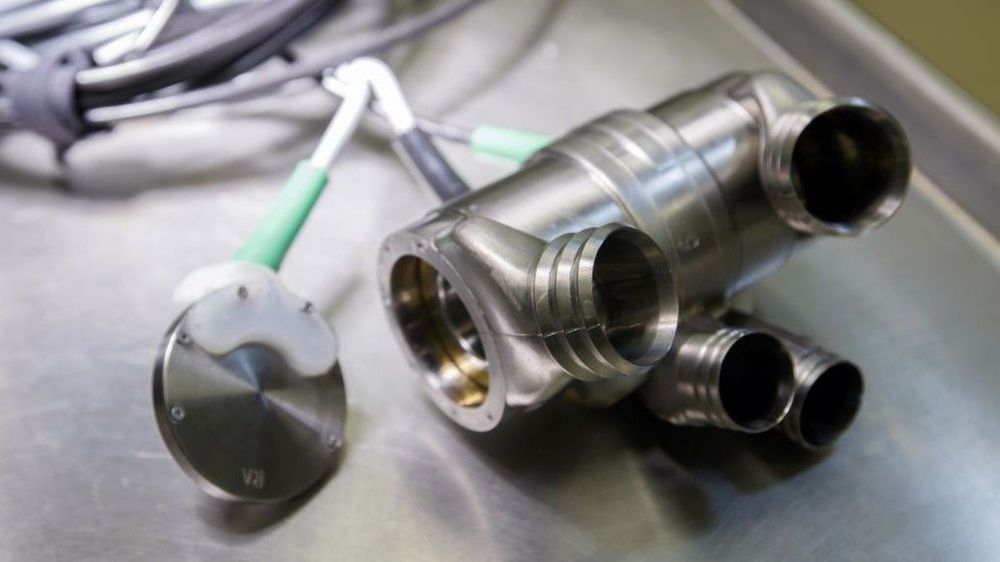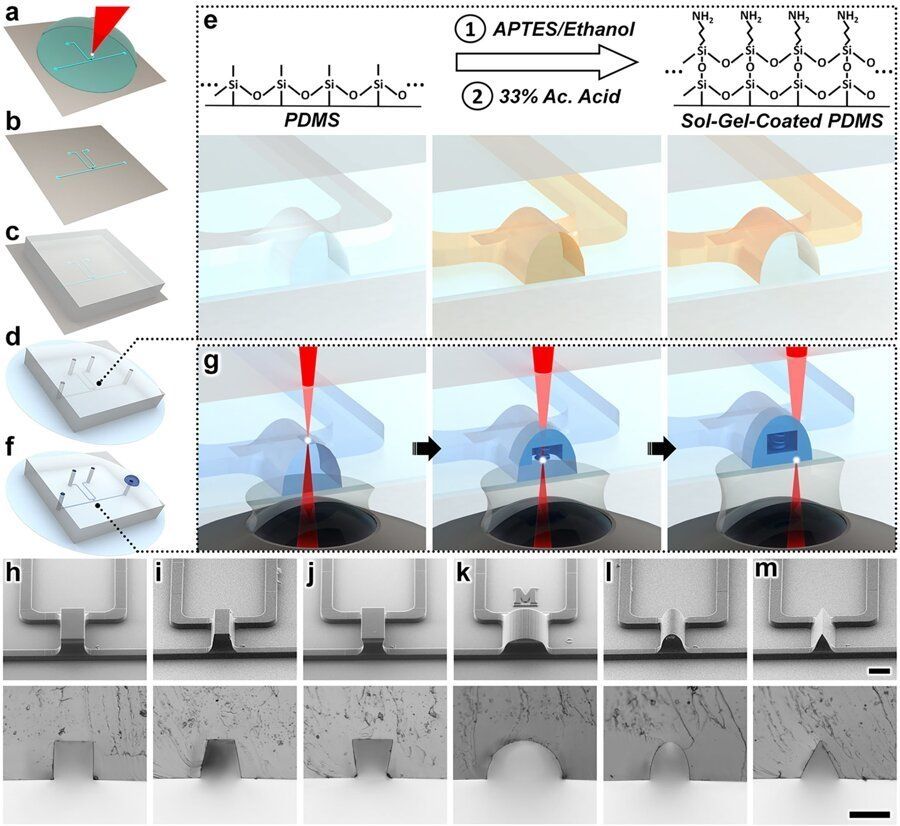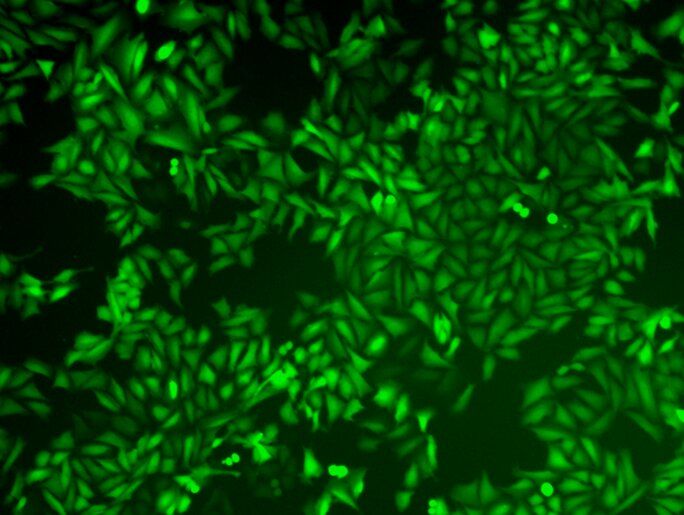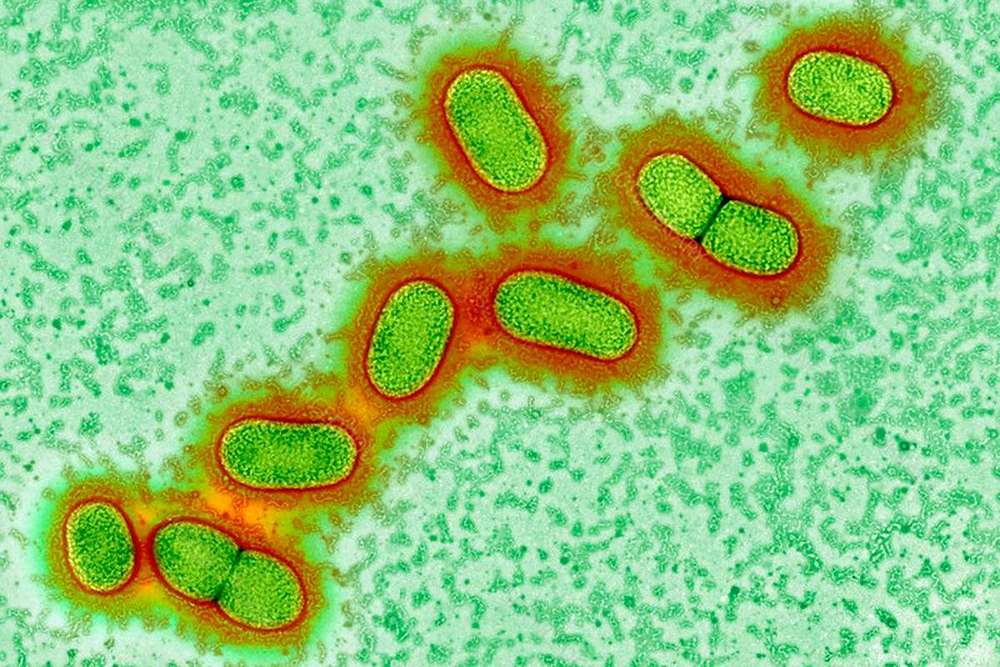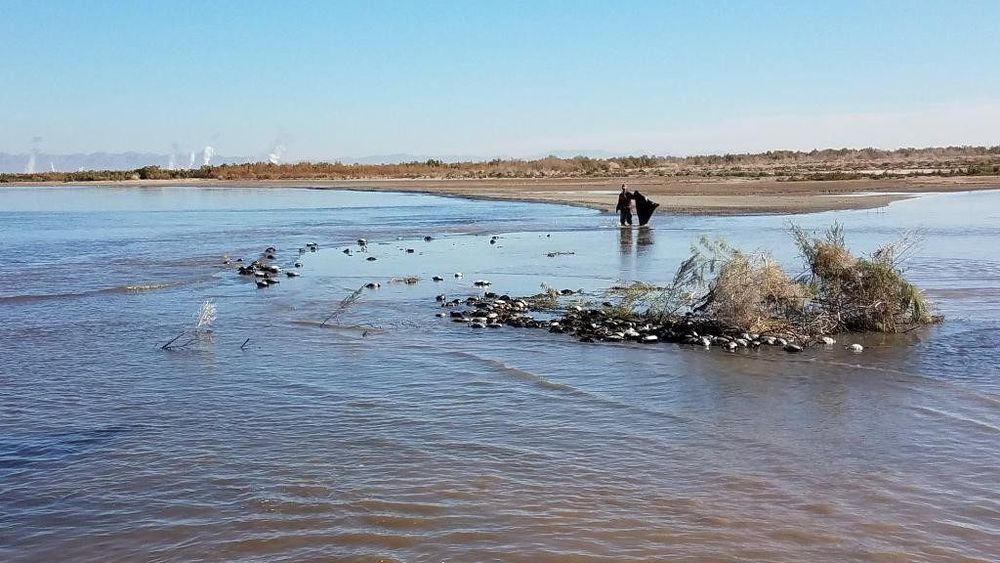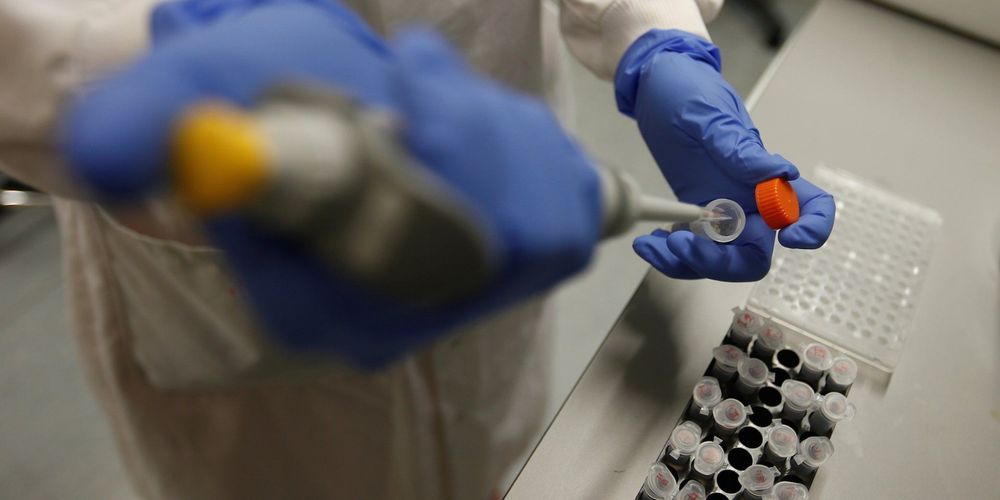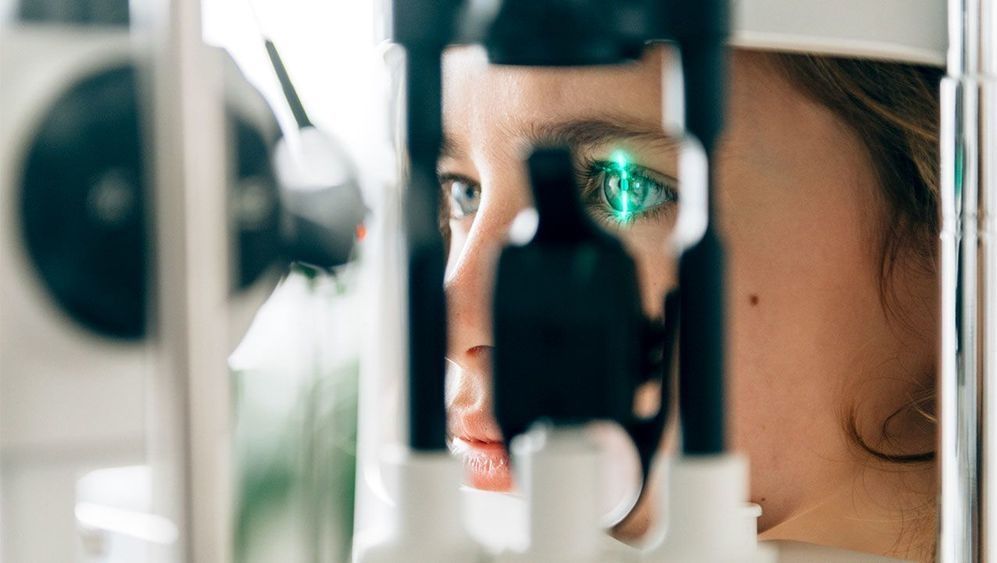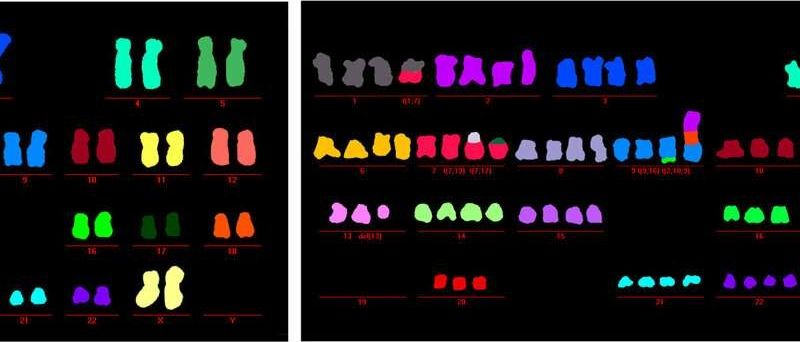Archive for the ‘biotech/medical’ category: Page 2216
Jan 23, 2019
New 3D nanoprinting strategy opens door to revolution in medicine, robotics
Posted by Paul Battista in categories: 3D printing, biotech/medical, robotics/AI
Engineers at the University of Maryland (UMD) have created the first 3D-printed fluid circuit element so tiny that 10 could rest on the width of a human hair. The diode ensures fluids move in only a single direction—a critical feature for products like implantable devices that release therapies directly into the body.
Jan 23, 2019
Cancer has a biological clock and this drug may keep it from ticking
Posted by Paul Battista in category: biotech/medical
A new drug shows potential to halt cancer cells’ growth by stunting the cells’ biological clock.
The findings from scientists at the USC Michelson Center for Convergent Bioscience and Nagoya University’s Institute of Transformative BioMolecules (ITbM) advance a burgeoning area of research: turning the body’s circadian rhythms against cancer.
Their study, conducted on human kidney cancer cells and on acute myeloid leukemia in mice, was published Jan. 23 in the journal Science Advances.
Continue reading “Cancer has a biological clock and this drug may keep it from ticking” »
Jan 23, 2019
We may finally know what causes Alzheimer’s – and how to stop it
Posted by Paul Battista in categories: biotech/medical, neuroscience
By Debora MacKenzie
If you bled when you brushed your teeth this morning, you might want to get that seen to. We may finally have found the long-elusive cause of Alzheimer’s disease: Porphyromonas gingivalis, the key bacteria in chronic gum disease.
That’s bad, as gum disease affects around a third of all people. But the good news is that a drug that blocks the main toxins of P. gingivalis is entering major clinical trials this year, and research published today shows it might stop and even reverse Alzheimer’s. There could even be a vaccine.
Continue reading “We may finally know what causes Alzheimer’s – and how to stop it” »
Jan 23, 2019
California officials collect more than 1,000 dead birds following outbreak of contagious, bacterial disease
Posted by Genevieve Klien in category: biotech/medical
More than 1,000 birds died at a lake in Southern California earlier this month, state wildlife officials announced Tuesday.
The birds – primarily migratory water fowls such as Ruddy Ducks, Northern Shovelers, Black-necked Stilts and Gulls – died at the Salton Sea after contracting a contagious bacterial disease known as avian cholera, which is caused by the bacterium Pasteurella multocida, the California Department of Fish & Wildlife (CDFW) said in a statement.
NEW YORK’S CENTRAL PARK IS NOW HOME TO A RARE AND COLORFUL MANDARIN DUCK
Jan 23, 2019
$225 billion drug giant Novartis is taking a fresh approach to cancer treatment, and it could help prepare it for a ‘doomsday scenario’
Posted by Genevieve Klien in categories: biotech/medical, existential risks
Pharma giant Novartis is developing drugs that could prevent cancer before patients get it. One big question: how will we pay for them?
Jan 23, 2019
Cancer-slaying virus may fight childhood eye tumor
Posted by Genevieve Klien in category: biotech/medical
Jan 23, 2019
It’s the End of the Gene As We Know It
Posted by Josef Koch in categories: biotech/medical, genetics
We’ve all seen the stark headlines: “Being Rich and Successful Is in Your DNA” (Guardian, July 12); “A New Genetic Test Could Help Determine Children’s Success” (Newsweek, July 10); “Our Fortunetelling Genes” make us (Wall Street Journal, Nov. 16); and so on.
The problem is, many of these headlines are not discussing real genes at all, but a crude statistical model of them, involving dozens of unlikely assumptions. Now, slowly but surely, that whole conceptual model of the gene is being challenged.
We have reached peak gene, and passed it.
Jan 23, 2019
In surprising reversal, scientists find a cellular process that stops cancer before it starts
Posted by Shane Hinshaw in categories: biotech/medical, life extension
Just as plastic tips protect the ends of shoelaces and keep them from fraying when we tie them, molecular tips called telomeres protect the ends of chromosomes and keep them from fusing when cells continually divide and duplicate their DNA. But while losing the plastic tips may lead to messy laces, telomere loss may lead to cancer.
Salk Institute scientists studying the relationship of telomeres to cancer made a surprising discovery: a cellular recycling process called autophagy—generally thought of as a survival mechanism—actually promotes the death of cells, thereby preventing cancer initiation.
The work, which appeared in the journal Nature on January 23, 2019, reveals autophagy to be a completely novel tumor-suppressing pathway and suggests that treatments to block the process in an effort to curb cancer may unintentionally promote it very early on.
Jan 23, 2019
Ingestible Nanobots To Start Delivering Drugs Into Blood Vessels
Posted by Klaus Baldauf in categories: biotech/medical, nanotechnology
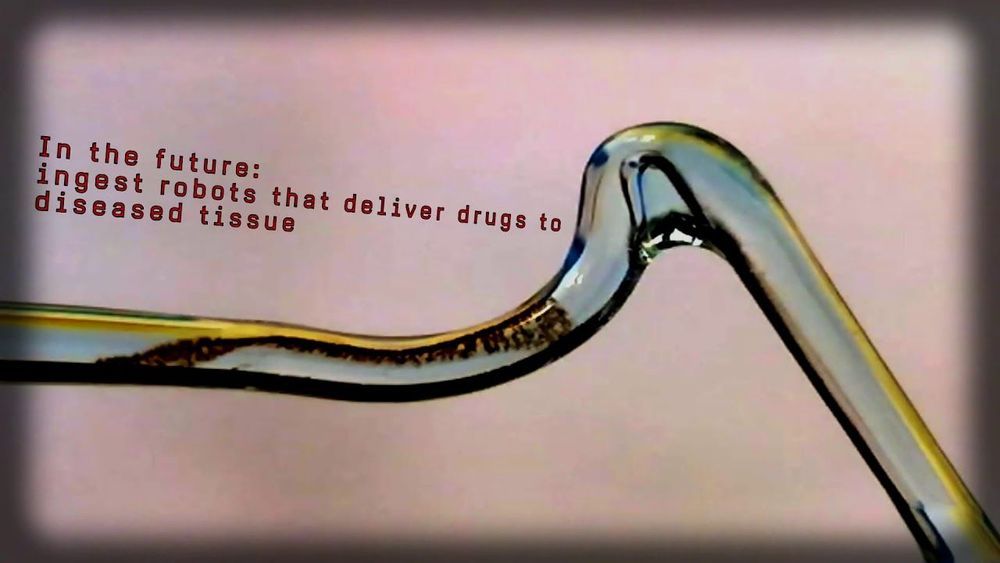
A newly designed set of nanorobots could be the key to implementing a new global structure of administering medication using nanobots.

